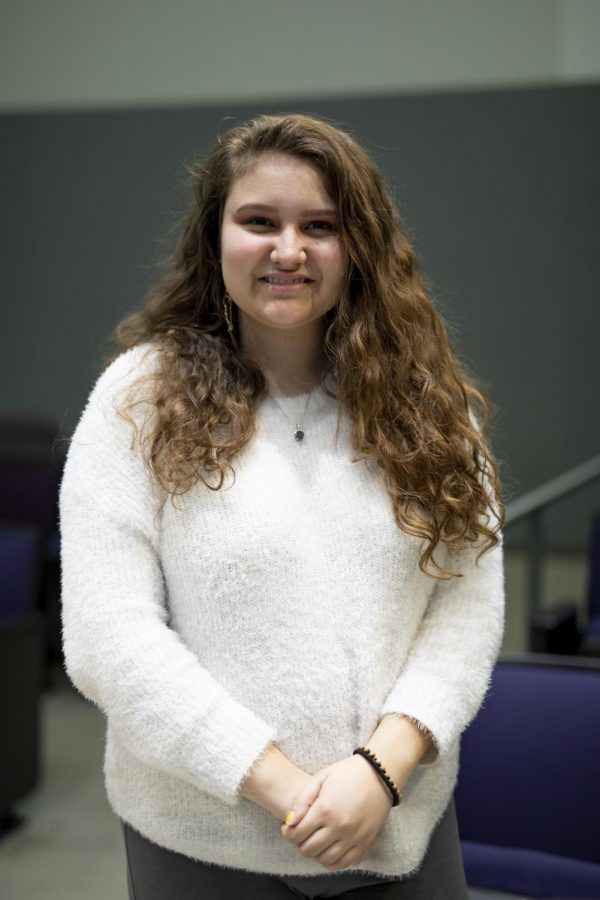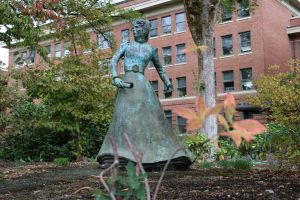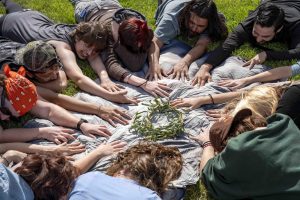The Disabled Students Union
February 23, 2020
“Twenty percent of the general population are people who have some sort of disability.”
As noted by Barbara Forrest-Ball, the Manager of Deaf and Hard of Hearing Access Services at Oregon State University, people with disabilities make up a large chunk of the population.
As a result, Kobey Bonin, a fourth year student studying Graphic Design, and a few of his peers decided to start a club called the Disabled Students Union with the goal of helping peers who have disabilities navigate college and find a sense of belonging. This relates to Bonin’s experience, who personally has tried to pursue his dreams and education despite having a disability, along with the help of family, friends, and Disability Access Services.
Accommodations and resources are provided by DAS. According to Forrest-Ball, these accommodations include accessible media offered by closed captioning videos, interpretation, and transcription, as well as classroom accessibility along with relocation options available. Furthermore, DAS also serves as a resource for faculty members by educating instructors about ways to help students with disabilities, which they may not have had experience with. An example would be accommodation additional notification of faculty, so that the faculty member understands the student’s needs and is able to address them. Besides services of its own, DAS also connects students with other resources like the Counseling and Psychological Services and the Survivor Advocacy and Resource Center.
These types of accommodations came about following the Americans with Disabilities Act Section 504 of the Rehabilitation Act of 1973 that required equal communication access.
Forrest-Ball works as a student advisor, interpreter, and transcriber. Because she herself has been diagnosed with attention deficit hyperactivity disorder, she understands the students’ position and helps to mentor them, such as learning to accept themselves and adapt to their circumstances. From this, not only do students receive support, but Forrest-Ball obtains fulfillment as well.
“I usually feel very honored, and it’s a privilege to work with students, because I want so much for them to succeed, and I know that with the right accommodations they can be successful,” Forrest-Ball said.
Even though DAS provides many benefits, connecting with it can be difficult according to Bonin. He has Duchenne muscular dystrophy, a genetic condition that results in progressive generalized muscle weakness.
“I’ve felt there’s a lot of resources on campus for me as a student, but I think the struggle is it’s just kind of hard to find where these resources are and get connected at first, but once that happens, it’s relatively easy to maintain them,” said Bonin.
As Vice President, Bonin has plans in mind in terms of inclusivity and accessibility.
“The club is a way to give a stronger voice to disabled students on campus and a place for them to find unity and connection and to compile resources through the experiences I’ve had so that students can find ways to get help with different issues,” said Bonin.
For the meantime, they have reached out to the Director of Facilities at the Memorial Union and University Housing & Dining Services about ways to address issues, accessibility updates, facilities, and maintenance. In addition, they’ve outlined a procedure about arranging accommodations with DAS, so that it can be accomplished at the student’s convenience. Many of their goals were discussed at their first meeting on Feb 12, which sets their regular meeting time for Wednesdays from 6 p.m. to 7 p.m. in the Learning Innovation Center, room 200.
Cameo Perrells, a third year student studying Nutrition and an active member of the club, feels that the club can enact change to address accessibility issues and bring together students with disabilities.
“I feel that the club is great, because for people who are at OSU and have mental and emotional and physical disabilities, it gives us representation and community,” said Perrells.
DAS and the Disabled Students Union are both sources of representation for students with disabilities, and Forrest-Ball verbalizes this.
“People with disabilities want to feel like they can go anywhere and do anything with some modifications or accommodations and just be able to have the same experience that everybody has,” said Forrest-Ball.






